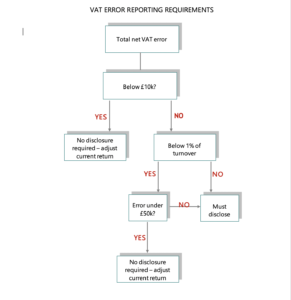Latest from the courts
In the Y4 Express Ltd (Y4) First Tier Tax Tribunal (FTT) case the issue was whether an individual was in business such that he was entitled to be VAT registered.
Background
Y4 imported goods from China on behalf of UK customers. This entailed collecting the goods from the airport, storing them and then arranging delivery of them to the final customers. Y4 had an arrangement with Royal Mail (RM) for a discounted delivery rate. RM subsequently withdrew this discount resulting in Y4 incurring increased delivery costs. In order to mitigate this, Y4 put a structure in place using an individual (Mr Man) to contract with RM for the discount and letting Y4 use the account to take advantage of the reduced rates: RM invoiced Mr Man and Y4 would arrange payment from its own funds via direct debit. Y4 dealt with Mr Man’s VAT compliance and raised self-billing documents to itself on which it recovered input tax. It was reported that Mr Man considered this as a favour to a friend rather than as a business venture with a view to making a profit, and indeed, the charges made by RM were not marked up. Mr Man was not involved with the arrangement of deliveries of Y4 carried out by RM.
HMRC disallowed the input tax claimed as it considered that the individual was not in business, so no VAT was due on the charge made to Y4. This was on the basis that the individual was not carrying on an ‘economic activity’.
Decision
The FTT agreed with the respondent and upheld the decision to disallow Y4’s claim for input tax. This was on the basis that Mr Man was not in business so could not make supplies to Y4, which in turn meant that there was no input tax for Y4 to claim.
Commentary
The issue of whether an entity is “in business” goes back to the earliest days of VAT. I have considered the issue and recent case law here here here here and here. HMRC relied heavily on the age-old (well, 1981) tests in the Lord Fisher case:
- Is the activity a serious undertaking earnestly pursued?
- Is the activity an occupation or function, which is actively pursued with reasonable or recognisable continuity?
- Does the activity have a certain measure of substance in terms of the quarterly or annual value of taxable supplies?
- Is the activity conducted in a regular manner and on sound and recognised business principles?
- Is the activity predominantly concerned with the making of taxable supplies for a consideration?
- Are the taxable supplies that are being made of a kind which, subject to differences of detail, are commonly made by those who seek to profit from them?
The judge found that the tests were not met by Mr Man and, even if they were, the evidence; the self-billing documents, were insufficient. It was also found that a penalty was due, although the quantum was reduced to reflect the cooperation of the taxpayer during the enquiries.
This appeal further demonstrates the ambiguity that often surrounds the definition of a business, and/or an economic activity (the EU legal definition). This is often an issue for charities and NFP bodies, but can extend to other areas such as in this case.

